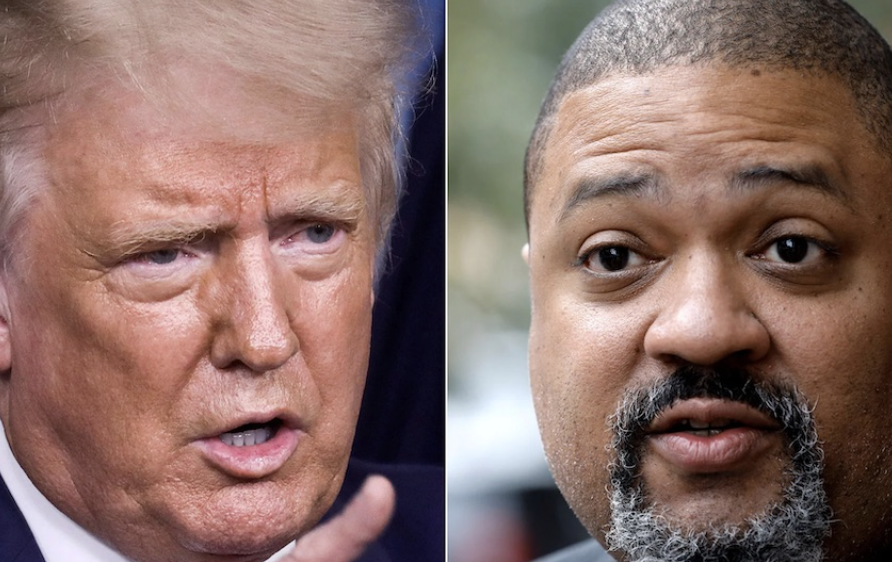Alvin Bragg Caves - Trump Wins!

In a document on Tuesday, Manhattan District Attorney Alvin Bragg indicated that he would not contest defense attorneys’ request to delay the scheduled hearing until next week. This suggests he is prepared to forgo a prompt sentencing in former President Donald Trump’s hush money trial.
After the Supreme Court’s unexpected ruling that sitting presidents are almost entirely immune from all official acts committed while in office, President Trump’s scheduled July 11th sentencing now appears uncertain.
Following Monday’s decision, lead defense attorney Todd Blanche swiftly moved to delay the sentencing hearing until later in the summer, while Judge Juan Merchan considered their request to overturn the conviction on 34 felony counts. The New York Times reported that, since both sides agree, a postponement is likely.
In a letter to Trump’s attorneys, the district attorney’s office stated that Merchan should consider the defense’s filed motion. Assistant district attorney Joshua Steinglass, who prosecuted the case, wrote, “Although we believe defendant’s arguments to be without merit, we do not oppose his request for leave to file and his putative request to adjourn sentencing pending determination of his motion.” Trump’s attorneys plan to file court documents on July 10, the day before the planned sentencing, with the prosecution set to respond two weeks later, according to the outlet.
According to The Hill, Blanche and his team have argued that the prosecution introduced information during the trial that would now be inadmissible due to the recent Supreme Court decision. This could lead to a review of the entire case. President Trump was convicted of overseeing the falsification of corporate records to hide a six-figure settlement with an adult film star and suppress allegations of an affair, which Trump denies.
The defense pointed out that the Federal Election Commission’s earlier investigation concluded the payment did not qualify as a campaign expense. However, Bragg’s team argued during the trial that it was an illegal attempt to influence the 2016 election.
The Supreme Court’s 6-3 decision would greatly expand presidential powers, forcing opponents to consider what kind of leader Donald Trump might be if he were to win the presidency again.
Chief Justice John Roberts, in his majority opinion, stated that a president should be able to perform duties without the threat of criminal prosecution. He clarified, however, that non-official actions could still be prosecuted as crimes.
“The President therefore may not be prosecuted for exercising his core constitutional powers, and he is entitled, at a minimum, to a presumptive immunity from prosecution for all his official acts,” Chief Justice John Roberts wrote in the majority opinion. “That immunity applies equally to all occupants of the Oval Office, regardless of politics, policy, or party.”